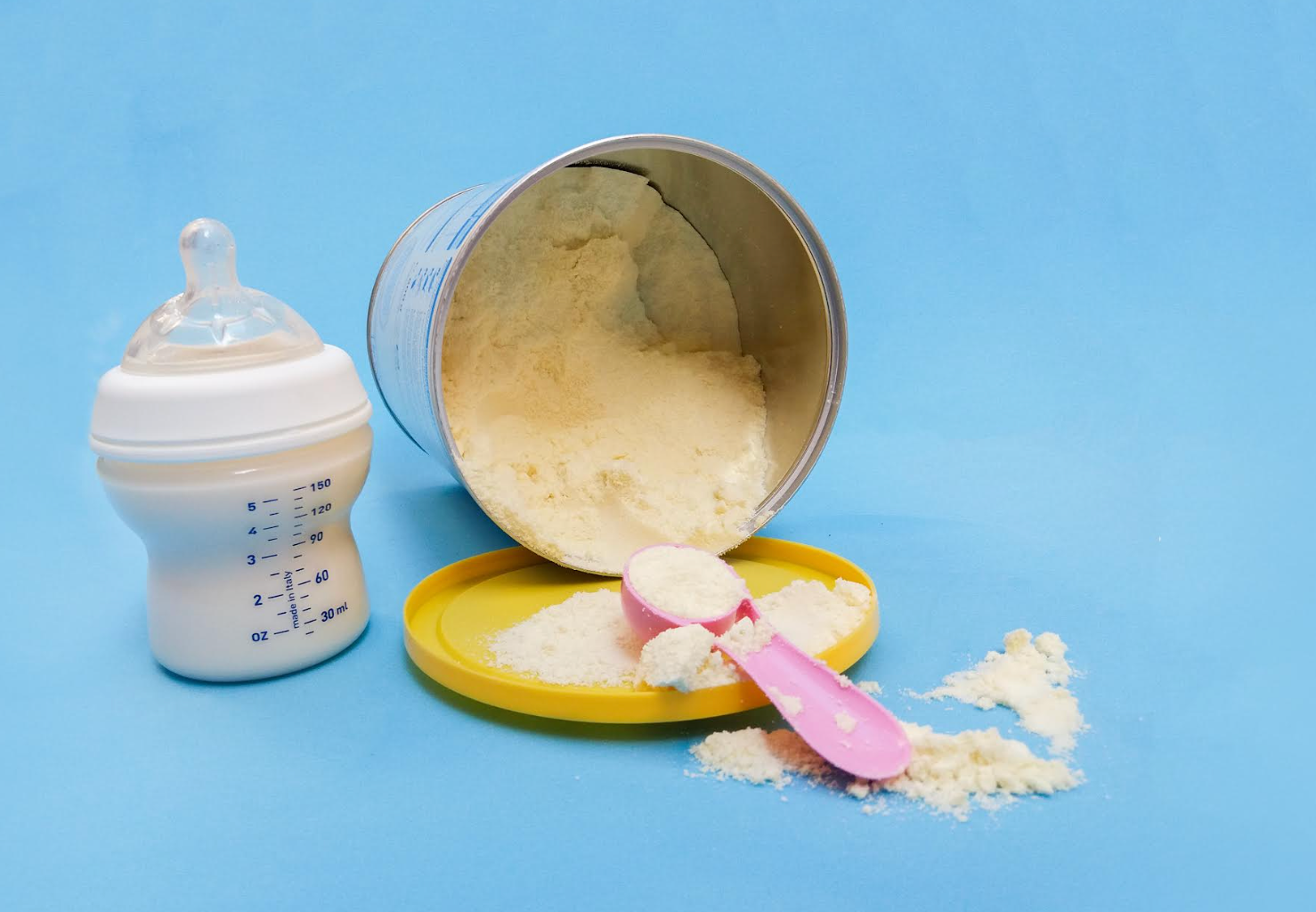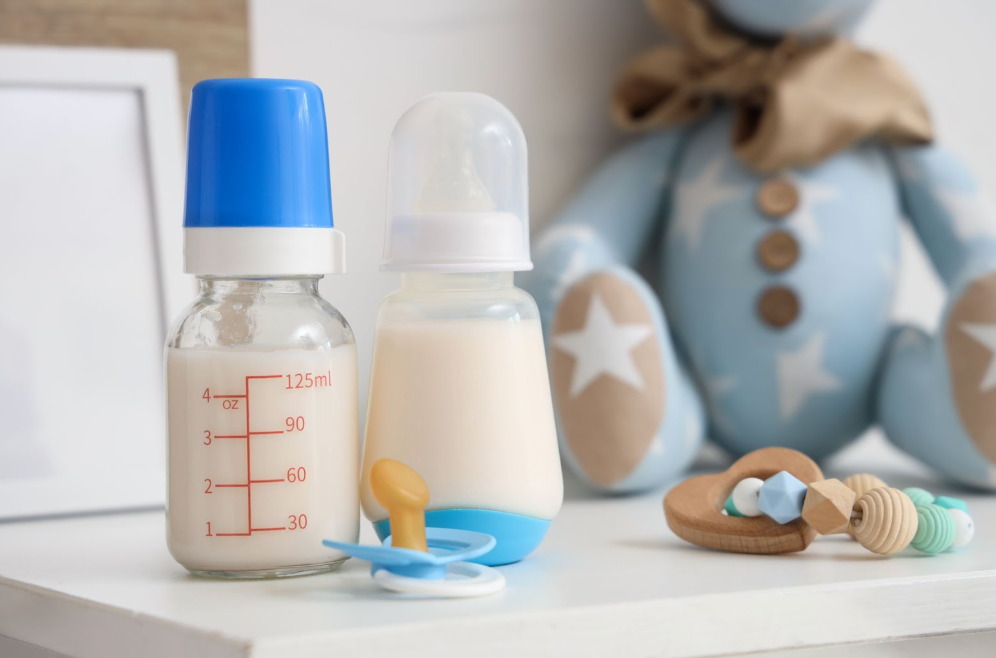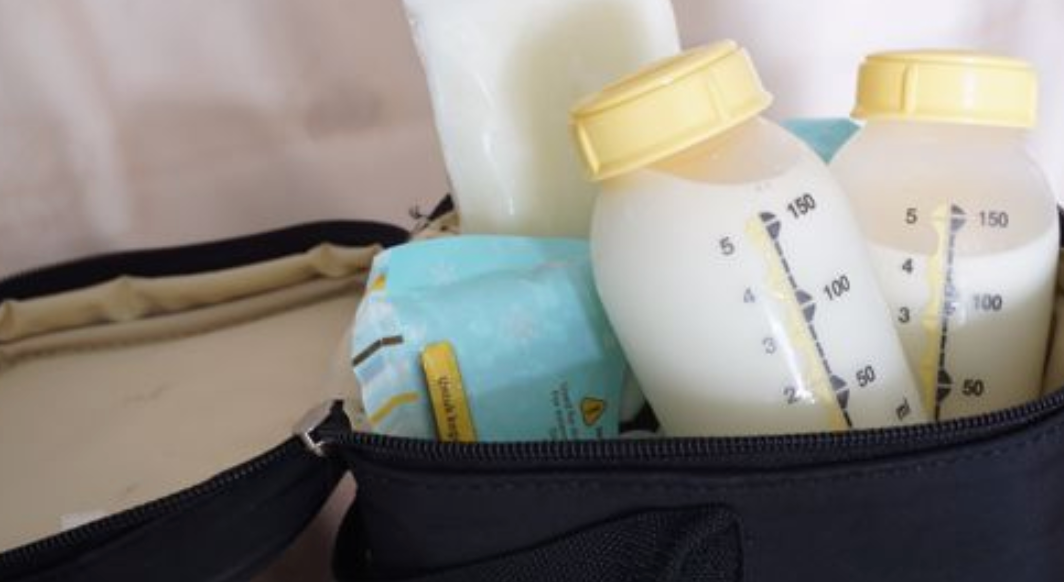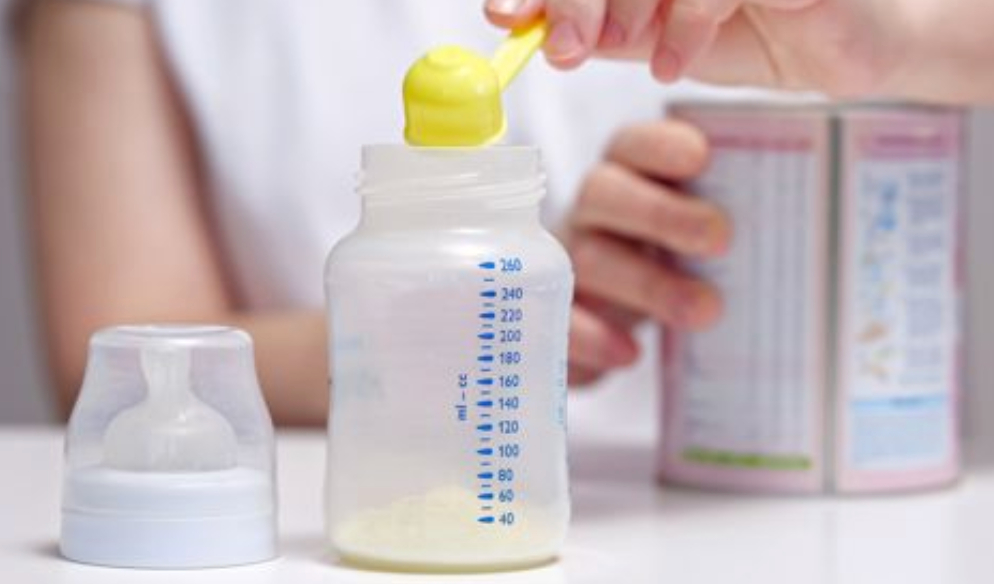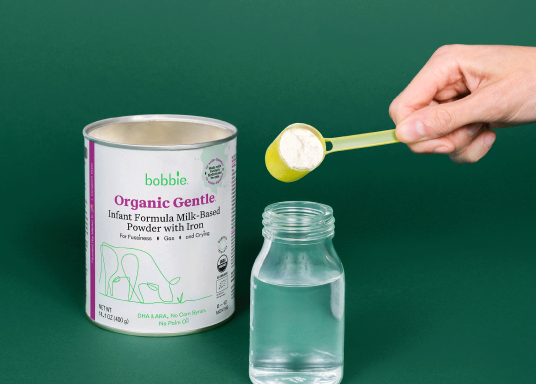Published June 20, 2024

Baby Formula Intolerance: Symptoms, Causes and Solutions
Embarking on the rollercoaster ride of parenthood is nothing short of an adventure, where moments of wonder can also be accompanied by a lot of confusion — or even concern. When every decision feels like navigating uncharted territory, selecting the right formula for your little one is no exception. But what happens when this seemingly straightforward decision becomes a source of worry due to your baby's experience with the formula you’ve selected?
Read on to discover the telltale signs that your baby might not tolerate a certain formula, why this could be the case and the best practices you can employ to ease their tummy woes.
What Is Formula Intolerance?
Formula intolerance occurs when your baby's delicate tummy reacts negatively to certain ingredients in their regular formula, leading to discomfort and fussiness. If you suspect this issue, rest assured, you're not alone. Studies show that between 2% and 15% of babies experience some form of formula intolerance, where their sensitive digestive systems respond to one or more ingredients. While common among infants, we understand the concern the symptoms of intolerance can bring as a parent.
That's why it's crucial to stay vigilant for even the subtlest cues of intolerance in your little one. Recognizing these signs early equips you to take proactive steps, from consulting with your pediatrician to trying different formulas, ensuring you find the right fit for your baby's needs. Understanding and managing formula intolerance empowers you to navigate parenthood confidently, nurturing your little one's well-being from the start.
NOTE: This article will address general discomfort as a result of using formula. Symptoms of diagnosed allergies, such as cow milk protein allergy (CMPA) or milk-soy protein intolerance (MSPI), should always be discussed with your child’s pediatrician.
What Are the Symptoms of a Baby Not Tolerating Formula?
Wondering how to spot if your baby is having trouble with their regular formula? Keep in mind that there can be normal variation in an infant's stool consistency, frequency, and color. Spit-up, gas, and fussy behaviors may also not be uncommon. As always, check with your child's pediatrician if you are concerned that these symptoms are reflective of your baby not tolerating formula. Let's delve into the signs indicating your little one might not be reacting to their formula well:
-
Frequent diarrhea: Keep an eye out for loose, watery stools occurring more often than usual. And remember, frequent loose stools can be normal for newborns! Watery stools might be a sign that your baby's digestive system is struggling to tolerate the formula. If diarrhea persists, speak with your pediatrician to learn about potential solutions and ensure your baby stays hydrated.
-
Excessive gas and bloating: Watch for signs of discomfort, like excessive gas and bloating, especially after feedings. This could mean your baby's digestive system is having difficulty processing certain ingredients in the formula, such as intact cow milk proteins.
-
Persistent fussiness or colic: If your baby seems unusually irritable, fussy or experiences prolonged periods of colic, it may be worth considering a formula change under the direction of your child's healthcare professional. Because these behaviors are naturally concerning, it’s important to identify and address the issue as quickly as you can.
- Skin rashes or irritation: Keep an eye on your baby's skin health — it could provide important clues about their well-being. Persistent rashes might seem unrelated, but they could signal a reaction to something the baby is being exposed to, either in their formula or in their environment.
-
Respiratory issues: Respiratory symptoms such as congestion can sometimes be linked to formula ingredients, especially if they occur shortly after feedings. If you notice any stuffiness, talk to your pediatrician to determine if formula intolerance could be contributing to the issue.
- Poor weight gain: Struggling to gain weight despite adequate feeding might suggest your baby isn't tolerating the formula well. This could lead to poor nutrient absorption, potentially affecting their growth and development. Always discuss poor weight gain with your pediatrician so they can help identify any potential underlying cause.
The Root Causes of Baby Formula Intolerance
Noticing the symptoms of formula intolerance or allergy is just the first step. It's equally important to identify the root cause of the issue to address it effectively. Understanding what specific ingredients or factors are causing your baby's discomfort will help you find a formula that better suits your little one's needs. Pinpointing the cause also ensures they receive the right nutrition without any associated problems, which is important for their health and happiness.
Take a closer look at the main reasons why your infant might be reacting to their formula:
1. Immature Digestive System
Newborns have developing digestive systems that might struggle with intact proteins in formulas. This can cause general intolerance, leading to gas, bloating and discomfort. Rest assured that these symptoms often improve as your baby's digestive system matures. In the meantime, a gentle or hydrolyzed option might be easier for them to digest.
2. Lactose Intolerance
Lactose intolerance happens when your baby's tummy can't produce enough lactase, the enzyme needed to digest lactose (i.e., the sugar in milk). This can cause stomach troubles like diarrhea, gas, and bloating. While lactose intolerance is exceedingly rare in infants (as lactose is the primary carbohydrate in breastmilk!), switching to a lactose-reduced or lactose-free formula can make a big difference in some babies' comfort.
3. Milk Protein Allergy
A milk protein allergy occurs when your baby's immune system mistakenly identifies milk protein as harmful, triggering a reaction. This can lead to symptoms such as vomiting, diarrhea, skin rashes, bloody stools, and even breathing issues. Cow's milk protein intolerance is one of the most common allergies in both babies and young children, with experts estimating that 2% to 7.5% of babies under 12 months old have it. If you suspect this allergy in your little one, a hypoallergenic formula with extensively broken-down proteins is often recommended.
4. Soy Protein Allergy
Just like with milk protein, some babies are allergic to the proteins in soy-based formulas. Soy protein intolerance can manifest as symptoms like an upset stomach, skin reactions, and respiratory problems. If your baby is reacting to their soy formula, you might need a specialized option that avoids both milk and soy protein, such as a hypoallergenic or amino acid-based formula.\
Sign up to get the scoop on feeding, sleep, poop, and so much more. By singing up for email, you are to receive marketing emails from Bobbie and can manage your email preferences or unsubscribe at anytime

Your go-to resource for all things new baby.
Addressing Formula Intolerance and Nurturing Your Baby’s Well-Being
Once you’ve recognized any symptoms of intolerance, it’s time to take action. Here are steps to address the issue and support your little one's health:
- Consult a pediatrician: These professionals can help confirm whether your baby is experiencing formula intolerance or if another issue might be at play. An expert diagnosis is crucial for determining the best course of action.
- Keep a symptom diary: Track your baby’s symptoms in a diary, noting what they experience and when. You can record details like their feeding times, the type of formula used and any reactions. This information may be invaluable for your pediatrician later on.
- Consider formula alternatives: Based on your pediatrician's advice, explore different formula options. This might include lactose-free, partially-hydrolyzed, hypoallergenic, organic or specialized formulas suited to your baby’s needs. You’ll find that the right formula may significantly improve your little one’s comfort and well-being during and after feedings.
- Implement feeding changes: Adjust feeding practices to help manage potential symptoms. This could involve feeding your baby smaller, more frequent volumes of formula, ensuring proper burping and maintaining an upright position throughout feedings. These changes are meant to reduce digestive discomfort and improve your baby’s tolerance to their formula.
- Watch their response: Once you've made changes, you’ll want to closely monitor your baby’s response — including improvements in symptoms and their overall behavior. Careful observation will help determine if the new formula or feeding approach is working. Remember to be patient: It may take time (some experts suggest up to 7-10 days!) to see these developments.
- Explore allergy testing: If symptoms persist, consider allergy testing to identify which specific allergens are causing the intolerance. A pediatric allergist can provide more information and help you determine the most suitable formula and dietary adjustments.
- Stay informed and proactive: More information never hurts, so stay up-to-date about infant nutrition and formula options. At the same time, be proactive in seeking advice and support from healthcare professionals and other parents who have faced similar challenges. This ultimately helps you make better decisions for your baby’s health.
When To Seek Professional Guidance
As a new parent, tackling formula intolerance can feel overwhelming, but you're not in this alone. Reach out to the professionals and use all the resources available to find the perfect baby formula for your little one. Your pediatrician is your go-to for expert advice and diagnosis, providing invaluable support along the way. They can also suggest connecting with a pediatric allergist, pediatric dietitian, and/or gastroenterologist for specialized assistance if needed.
Keep an eye out for both rapid-onset symptoms like vomiting, hives, or breathing difficulties, and slower-onset issues such as persistent fussiness, rashiness, or poor weight gain. While these signs can understandably worry you as a parent, addressing them promptly with a healthcare professional ensures your little one gets the care they need for a healthy journey ahead.
Finding the Right Formula and Ensuring a Smooth Transition
If you've realized your current formula isn't the best fit for your baby, you're likely searching for alternatives. There are a few important factors to consider that can guide you in selecting the right formula and making a smooth transition:
-
Consider your baby's needs: Start by taking into account any dietary restrictions, allergies or sensitivities your baby may have. Consult with your pediatrician before choosing a new formula.
-
Evaluate formula ingredients: Consider the type of protein, carbohydrate source, and additional additives in the formula. You’ll also want to review where the formula is sourced from, as ingredient regulations are different around the world. Opt for a formula that aligns with your baby's nutritional needs and preferences.
-
Monitor for signs of intolerance: Pay attention to your baby's cues and watch for any signs of intolerance or discomfort during the transition process.
-
Be patient and flexible: Remember that finding the right formula may require some trial and error. Be patient along the way and ready to make adjustments as needed.
- Trust your instincts: You know your baby better than anyone else. So, above all, trust your instincts as a parent and prioritize your baby's comfort and well-being for the best results.
Thoughtfully Crafted Infant Formula for Optimal Health and Comfort
When it comes to infant formula, finding a product that’s the right fit for both your baby's health needs and your peace of mind is essential. Bobbie emerges as a trusted provider, offering specially crafted formulas designed with only the finest ingredients. With a commitment to transparency and quality, our formulas prioritize organic, thoughtfully-sourced components ensuring your little ones receive nourishment to support growth and development.
Shop Bobbie Baby Formula today to get started!
Bobbie infant formulas are clean, EU-style infant formulas that meets all FDA requirements. They are complete nutrition, milk-based powder, modeled after breast milk and is easy on tummies. They are all non-GMO and do not have corn syrup, palm oil, or maltodextrin. Shop Bobbie today!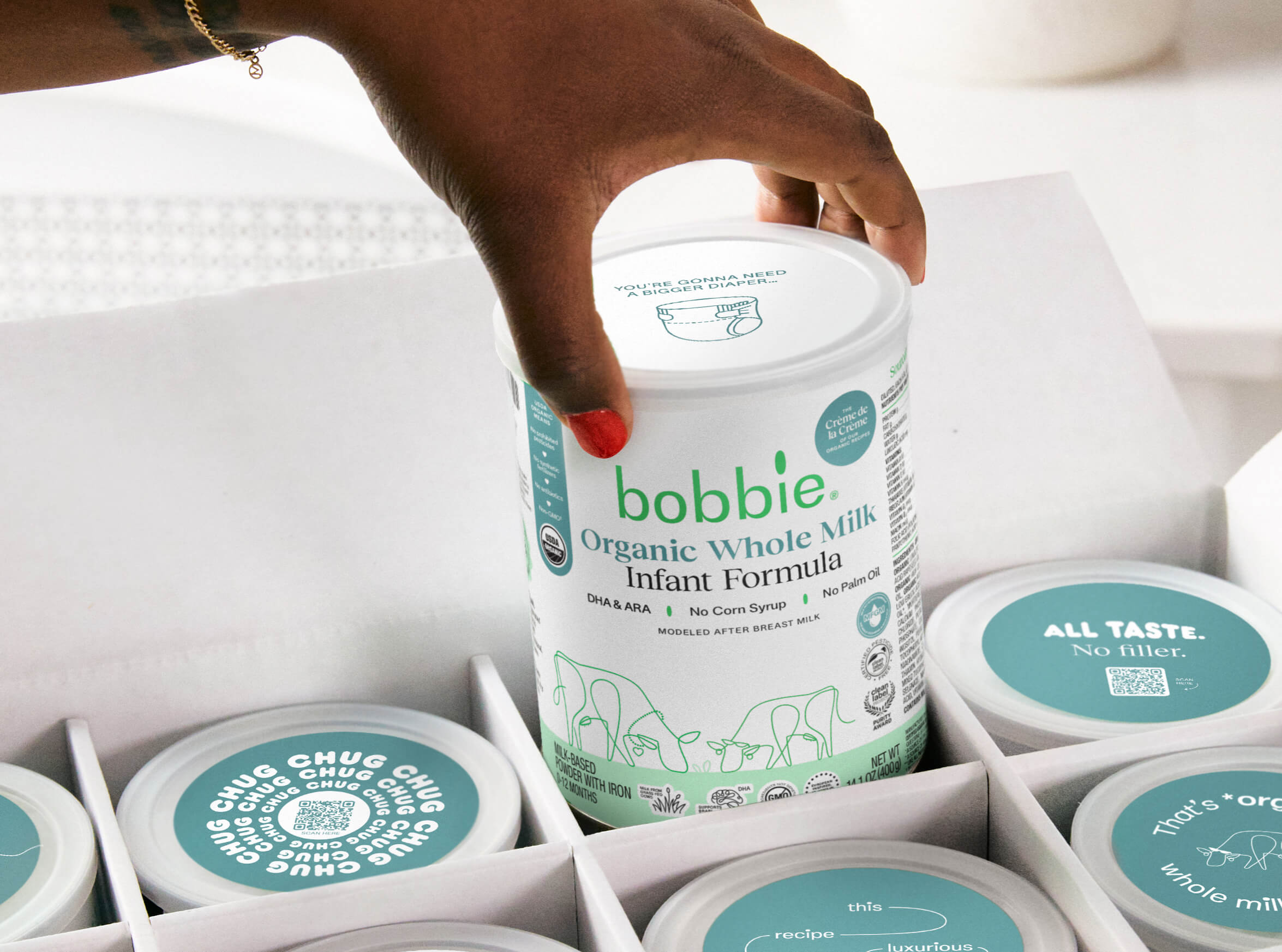
Shop Bobbie Baby Formula

The content on this site is for informational purposes only and not intended to be a substitute for professional medical advice, diagnosis or treatment. Discuss any health or feeding concerns with your infant’s pediatrician. Never disregard professional medical advice or delay it based on the content on this page.







